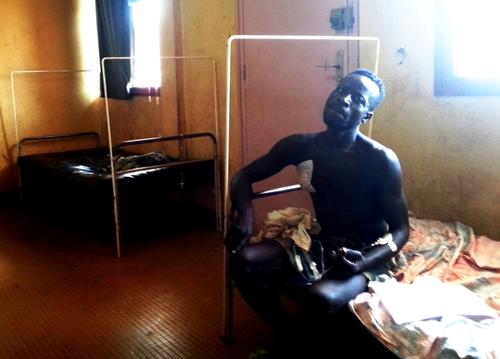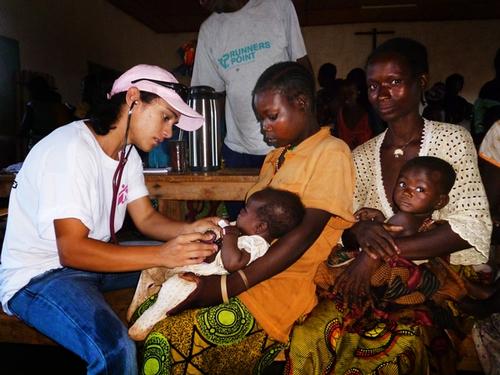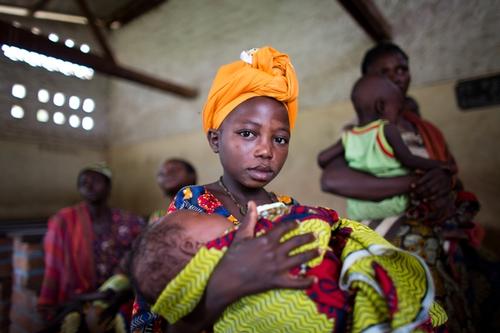Sylvain Groulx, MSF coordinator in Central African Republican, talks about the situation in Bangui, almost a week after the Séleka opposition group took the capital, and the consequences that the fighting and looting might have on the population of the country, -many of them still hiding in the bush- with the rainy season looming.
What is the situation now?
Sylvain Groulx: The situation is slowly improving, although a sense of insecurity is still pervasive during the day and at night we can still hear gunfire and we know that some looting is still occurring. We also notice the fear in the population: people are still afraid to go out, to leave their homes and there is no public transport so even if people do want to get back to work, it’s difficult for them to move around. And they face the same problems if the need to go to the hospitals.
What about water and electricity? Have they been restored in Bangui?
SG: Not yet and it’s a problem for the population. People are using little wells in the neighborhood, but that doesn’t mean the water is potable. Lack of water and electricity is also a huge problem for the running of hospitals and health centers.
What is MSF doing in the city?
SG: We are supporting the Hôpital Communautaire (Community Hospital) where most of the wounded and sick are being cared for now (the Amitié hospital is not functioning, as the staff hasn’t returned to work yet) and also the Castor Health Center (which operates a maternity, surgical rooms and general consultations). We have also delivered 3000 liters of fuel to the hospitals so they have electricity needed for surgeries (they had been suspended when the power went out) and we are going to use a water truck to fill up the deposits at the hospitals.
What about in the rest of the country?
SG: Everybody is focusing its interest on the situation in Bangui. But one of our concerns is what’s going on in the rest of the country, where insecurity is still prevalent and looting is still going on. Just yesterday we got the news that the referral hospital in Bossangoa, one of the biggest in the area has been completely looted. We will organize a team to go up as soon as the security situation allows it and evaluate how we can help there. In Batangafo, Kabo and Ndélé, Boguila, Zemio, Carnot and Paoua we continue operations, although we can’t operate in the periphery of some of these locations due to the insecurity.
What is your fear for the population in the countryside?
SG: Although many people are returning to their villages, we fear that many may still be hiding in the bush. We need to add to that the economic hardship that people are suffering as a consequence of the looting and fighting: loss of salaries, of their goods, of their tools or their food. We fear for the health of population and its nutritional situation.
How is the rainy season going to affect to the situation?
SG: It runs from May to November. Access to part of the country will be difficult if not impossible. Part of the country will get cut off and will not be in the reach of NGO’s. With regard to the traditional hunger gap - the looting of stocks of food might contribute to major food insecurity.






